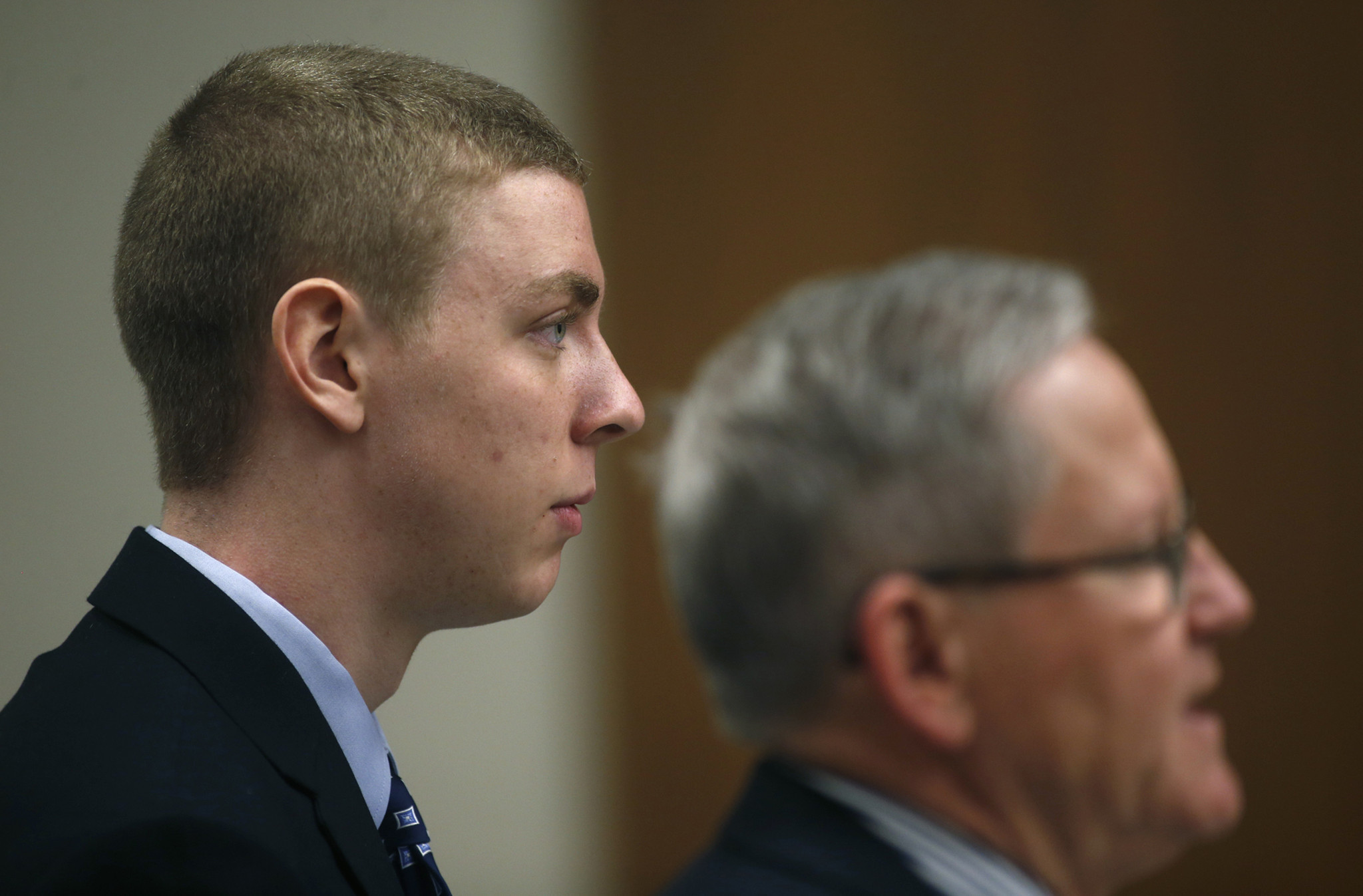On January 18, 2015, Brock Turner, then-Stanford swimmer, sexually assaulted an unconscious woman behind a dumpster during a fraternity party. The woman, who was not a Stanford student and chose to be anonymously referred to as Emily Doe, was heavily intoxicated that night and has no recollection of the attack.
Next March, Turner, who was convicted of three counts of felony sexual assault, was sentenced to six months in county jail. Though Emily Doe has no recollection of her assault, she nevertheless penned a letter addressed to Turner, which, along with his lenient and unreasonable sentence, has attracted international attention and outrage.
Many criticized Turner’s original sentence as outrageously lenient, as the maximum sentence he could have received was ten years. However, he didn’t even serve the entirety of the six months, as he was released after only a three month stint in jail. Even more egregious, Turner, now a registered sex offender in his home state of Ohio, is moving to overturn his conviction, claiming he did not receive a fair trial.
[su_youtube url=”https://www.youtube.com/watch?v=RgVJhc9xi9w”]
The Brock Turner case has undoubtedly created a paradigm shift in sexual assault and awareness in our culture, particularly on college campuses. Emily Doe’s letter to Turner has not only received millions of views and an international outpouring of support, but also successfully raised public awareness on an issue affecting a large portion of the population.
Following Turner’s conviction, Stanford began to increasingly emphasize the issue of sexual assault during freshman orientation, and many other universities around the country have also upped their efforts in combating the prevalence of sexual assault. Examples of popular programs around the country include “Not On My Campus” and “It’s On Us,” a government initiative spearheaded by former Vice President Joe Biden in 2014.
The original case was an obvious watershed moment for sexual assault awareness and prevention, contributing largely to social activism on college campuses throughout America. Though Turner’s attempt to overturn his conviction is not as heavily publicized, a new case could result in dangerous effects and setbacks to a hard-fought movement to seek justice for victims of sexual assault.
The reason Turner was able to get off so easily and receive a laughably lenient sentence is solely due to Judge Aaron Persky, who feared a heavy sentence for Turner would impede his future athletic career. To support his argument, Judge Persky made claims of Turner’s successes as a collegiate swimmer and the potential for a bright future as a professional athlete. Turner, clearly inspired, is now taking Judge Persky’s argument even further, by claiming he was denied a fair trial. Meanwhile, almost two years after the original case, Judge Persky continues to face the possibility of being recalled from the bench, thanks to this campaign.
According to Turner’s attorney, Eric Multhaup, he did not receive a fair trial due to the exclusion of testimony from character witnesses who could attest to his academic and athletic success. Furthermore, the brief filed by Multhaup emphasizes the heavily intoxicated state of Emily Doe, a blatant attempt to deflect negative attention directed towards him.
Turner’s attempt to overturn his conviction epitomizes the problem with rape culture, in which he attempts to normalize his actions by solely blaming the victim for her state of drunkenness. Furthermore, Turner is clearly trying to deflect attention from himself by addressing the supposed lack of testimonies focusing on his past achievements. What Turner fails to recognize is that whatever academic or athletic achievements he may have accumulated in the past will be unable to hide the fact that he is not a student-athlete anymore; he is a rapist.
The obvious issue with Turner’s accusations is how he basically disregards the wide-ranging implications of his actions, in particular the trauma facing Emily Doe. In sexual assault cases, it is all too common for the perpetrator to attempt to deflect his culpability by focusing on the victim’s supposed faults or claiming mischaracterization.
In another recent high-profile sexual assault case, in which the victim was a former University of Alabama student named Megan Rondini and her attacker, a local Tuscaloosa businessman named T.J. Bunn, not only vehemently denied the accusations against him, but claims “she was clearly troubled.” From the beginning, Tuscaloosa police were on Bunn’s side, refusing to believe Megan’s accusations and trauma and never seriously interrogated her attacker. As a result, Bunn was never arrested, and Megan, who transferred to Southern Methodist University, battled depression and post-traumatic stress disorder, committing suicide in winter of 2016.
The Rondini case clearly differs from the Turner case in many aspects, namely because Bunn was never even prosecuted and sentenced. However, both are examples of high-profile sexual assault cases in which the perpetrators attempted to deflect attention away from themselves by victim-blaming, an old yet potentially effective legal strategy. Whether they did this simply to save their own public reputations, or even if they are not fully aware of their culpability, we may never know. But the lessons learned from past cases will inevitably affect those in the future, namely Turner’s upcoming retrial.
Turner’s case has not moved forward in a court of law, but a full hearing is expected sometime in 2018. If his new case is successful, it can have severe implications on the future of college sexual assault cases. Turner’s actions, which have the potential to establish a dangerous precedent for privileged individuals, can leave a legacy in similar cases in the future.
Though it’s quite obvious that Turner is trying to clear his name, the damage has already been done. Brock Turner has successfully solidified his status as not only a sex offender, but someone who continues to be blinded by his belief that he is, above all else, innocent.

















